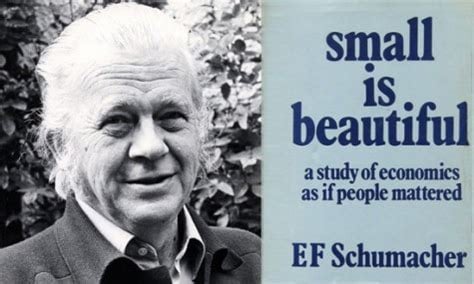Maestro-level leaders learn to articulate their leadership philosophy. Without it how can their successors develop their own in reference to what their predecessor built?
Deep in my leadership philosophy is the book Small is Beautiful by E.F Schumacher. It influenced the business model for Design Group International when we began so many years ago. Here is a brief essay I wrote about halfway through my journey as CEO…..

Years ago I read Small is Beautiful by E.F. Schumacher and since then my awareness of the connection between smallness and long-term sustainability keeps growing.
Smallness means nimbleness, fleetness and responsiveness. Smallness means niche, individual meaning, simplicity of design and creative space, especially if the small business or organization is intentionally organized that way. Think hummingbird, field gecko, or sardine in comparison to an elephant, dinosaur, or blue whale. Small animals might be fragile, but they can rapidly flit on to new things and have little difficulty breeding. They can survive, even thrive, on fewer resources. Small organizations have many of these same advantages.
Yet western culture remains enamored with bigness. Do you reach a lot of people? You must be fundamentally better and more interesting than small organizations with deep and abiding relationships among those they serve. Did your organization grow rapidly? You are granted instant celebrity status, even if that growth is inefficient, unstable and short-lived.
So many of the organizations that keep on going and going are small, constantly remaking themselves but never becoming all that large, while organizations that are large tend to disappear as rapidly as they rise. An example: the first congregation I served reached its centennial a few years back, still pretty much the same size after all these years, while two of the largest congregations in that same town, built around a celebrity pastor or a novel approach to ministry programming, no longer exist. Or consider the rise and fall of large firms. Enron came and went. Sears & Roebuck is gone. Apple, Google and Amazon face scrutiny for monopolistic practices and face almost certain forced breaking up à la Standard Oil and the Bells. Which is the best measure of success in such a comparison--being large and publicly flaming out or living long and being relatively uninteresting?
Writing prior to our more recent too big to fail approach to managing an economy, Schumacher pointed out that large organizations that succeed tend to break down into many small business units instead of large and unwieldy divisions. Growth in such a case is managed by radiating outward to produce new resources instead of soaking up resources so that they are not available to competitors. Small units within larger organizations promote entrepreneurship, creativity, and personal ownership for the success of the enterprise.
We built Design Group International on this orientation. We are not much interested in our total billings each year as long as our bills are paid while completing challenging work. We are not concerned about being larger than other organizational development firms. Rather, we care about being able to serve organizations small and large. We are not measuring success by revenue growth but by length of organizational life and our ability to successfully transition our firm to the ownership and stewardship of others.
And . . . .if the business model does not hold up we won't have destroyed anyone or anything. We will live to see another day.
Tags:
Small is beautiful, small organizations, Mark L. Vincent, Design Group International, small business development, Maestro-level Leaders, The Third Turn Podcast, Kristin Evenson, Third Turn Blog, leadership philosophy
September 1, 2022
Comments